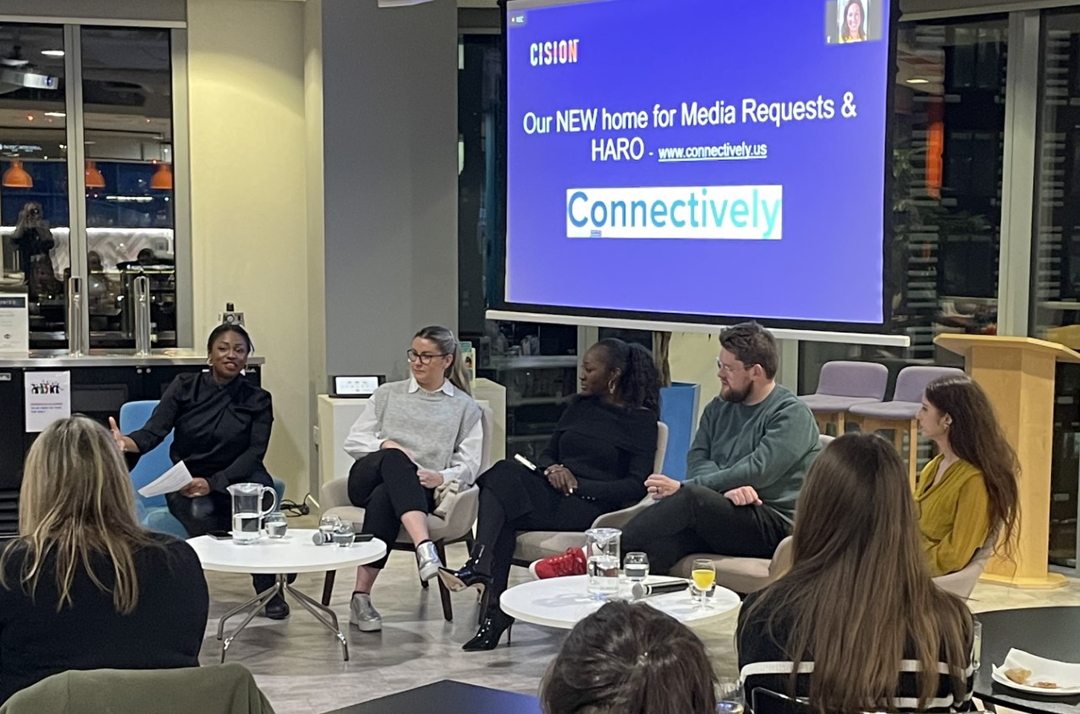X/Twitter is the 12th-ranked social media platform in the world, falling behind Facebook, Instagram, TikTok, and Snapchat in monthly users. However, it has had an outsized influence on global news, politics and newsroom agendas; it was once the “go-to for news”.
There are still thousands of journalists using X for networking, news and finding case studies, but engagement has fallen since Elon Musk bought the platform. Cision’s London office hosted a Women in Journalism panel event, ‘What’s Next After X?’, to explore repercussions for news and journalism. Are there any other social platforms able to replicate what Twitter offered? What about text-based versus video platforms? And are you undervaluing Reddit?
Twitter's Impact on the Newsroom
Event host Genelle Aldred – at her last event as Deputy Chair of Women in Journalism – started out by asking how Twitter first changed the news landscape, allowing journalists to build their profiles and get jobs based on the strength of their online presence.
Eva Simpson, founder of ES-PR and a former journalist, described how Twitter emerged as the “number one source” that became an “integral part of news culture” as a fast and effective communication tool. Twitter served as a platform that could democratise the dissemination of information and organising of protests, famously during the Arab Spring in 2012.
Hardeep Matharu, Editor of the Byline Times, underscored the site’s importance as a space for amplifying “different types of stories”, allowing voices from underrepresented groups to be heard. For an independent outlet like the Byline Times, Twitter was a free business tool for launching their business without a marketing budget, allowing them to bypass outside mediators.

Not the First Platform to Fade
For a news organisation that tries to launch on X today, it would be much more challenging. According to Barnaby Barron (Cision’s Head of Insights Consulting, EMEA) over the past four to five years, the percentage of regular users in the UK has gone from 34% to 32%. While this is not a huge decline – it is smaller than Facebook’s decline in the same period – active engagement has taken a hit of 3-5% since Musk took over. In real terms, this means a post with 1,000 likes “pre-Musk” might get 600-700 likes “post-Musk”.
Genelle Aldred raised the question whether the decline of Twitter/X is a natural evolution that happens to most social media, from MSN Messenger to Myspace, that can’t be pinned on Elon Musk. Eva Simpson noted that much of the onus is on Musk, as the sharp decline in discourse on the site is too pronounced, that it has lost its position as a “market leader for breaking news, for conversation”.
More broadly, Hardeep Matharu pointed out that the platform’s decline is not an isolated problem; it is part of the wider “culture wars” in which populist politicians and social media sites form a cycle of polarisation. The news industry and social media are “two separate things” but “in a lot of our minds they have now merged”. Aldred highlighted the part that journalists play in the cycle of news and social media, in which tweets feed into headlines and drive more tweets and headlines. Twitter may have influenced the news agenda, but the majority of the UK public is not on the platform, and it does not reflect “what people care about on the street”, according to Matharu.
Is X Still Valuable to Brands?
In conversations before the panel discussion, the mood in the room was one of nostalgia for the ‘old Twitter’ and the connections which were made there. As journalists and PRs, but equally as consumers, the audience expressed disillusionment with X. Ellie Mcdonald, Digital Account Director at Headland Consultancy, advises brands to “wait it out” and keep a presence on X; “nobody knows where we’ll be in 6 to 12 months' time”. Aside from companies who want to reach politicos, who are still on X, the platform is still “important from a customer service perspective”. Consumers are less interested in spending time on X, but for brands it still has its uses as a “transactional space” and as “a newsroom”.
All social media platforms have the edge over outlets when it comes to news consumption; according to Barnaby Barron, “none of them want you to click off the website”. In reference to a newcomer like Threads, which appears to de-prioritise news content, he pointed out that there is “still room for a [social media platform] where people go and get news”.
Connecting with Generation Z
According to Ofcom, 47% of UK adults use social media for news, but among young people (16-24) that figure is 71%. Eva Simpson highlighted the need for news organisations to make a connection with the younger generations, who are more likely to be on Snapchat or TikTok than Twitter. Between 2020 and 2023, the percentage of UK adults reporting to use TikTok as a news source leapt from 1% to 10% (Ofcom News Consumption Survey 2023). Meanwhile, the percentage using X/Twitter as a news source stayed at 17%.
With X's decline, what alternatives are there for sharing news? Facebook should not be ignored, said Barnaby Barron and Ellie Mcdonald. Of all the social media platforms used for news, Facebook remains the most popular at 30% of UK adults. However, that has fallen from 35% in 2019. Barron pointed out that closed communities like Reddit, similar to Facebook groups, should not be underestimated. Subreddits are a good place to find “highly engaged” consumers.
Part of the problem with finding X alternatives is that the site is text-first in an era dominated by video platforms. LinkedIn has had a boost from the decline of X; Mcdonald observed “we’re seeing everyone increasing their activity”. However, she described it as an “interim solution”. Genelle Aldred said that LinkedIn posts have a “long tail” that take a few days to gain traction, and as such the platform is not a space for news coverage; posting multiple times a day can also see your content de-prioritised. Visual platforms YouTube, Instagram and TikTok all have far more users, but Barron advised that “visual necessitates a completely different approach” to text.
How Safe Can Open Platforms Be?
Threads has been the biggest text-based platform launch since the takeover of Twitter, and Meta now reports 130m monthly users, but it remains to be seen how far it will challenge X’s 660m+ monthly users. Social media users still want written communication, but most of it happens in closed spaces rather than in the former ‘town hall’ of Twitter. The majority of this occurs in personal chats like those on WhatsApp, where text is the default medium and voice notes are seen as an imposition. Only a minority of people are active on niche communities like subreddits and Discord servers, but what all these closed spaces offer is a sense of control in an online world that feels increasingly volatile.
The closed spaces of private forums, servers and Telegram groups rightly have an association with extremism; toxic communities can use that privacy to percolate their ideas. However, as the mainstream social media platforms become even less moderated, those extremist views have spilled into the ‘town hall’ as well. In turn, this has pushed more users to reduce their time in the ‘open’ internet and seek out the closed spaces where they have increased safety and control, like the WhatsApp groups that millions of us use every day.
This is a challenge for social media companies, news outlets and advertisers alike: can the average internet user be convinced to keep engaging in open, online spaces as they become increasingly unregulated? Social media users are more aware than ever that their attention is a commodity, and if they feel unsafe or undervalued, they have the power to invest that attention elsewhere.
Sign up to Connectively, Cision's community of journalists, content creators, PR pros and subject matter experts to find opportunities for collaboration and brand growth.
What the latest media industry updates? Sign up to our weekly Media Moves newsletter.
Most Recent Posts
Cision Resources
-
E-books and Guides
Comprehensive how-to guides on strategy and tactics
-
Case Studies
What are other brands doing – and how can we learn from them?
About Natalie Beale
Natalie is Cision UK's Senior Content Editor, based in London. She manages the UK Media Moves newsletters, which showcase the latest journalist news and moves, as well as highlighting industry events and awards.
Learn More. Do More. demo new
PR Tips, Case Studies, and Product Updates

[On-Demand Webinar] The Next Generation of Media Intelligence: From Gorkana to CisionOne
Explore CisionOne, a revolutionary media intelligence platform, and the evolution of Gorkana. Learn key features and strategies from Luke Williams, CisionOne Product Marketing Manager. Elevate your media outreach to new heights!


